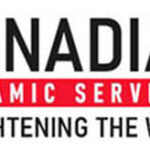
Halal Finance: Prophet Muhammad's Economic Justice
In the realm of finance, the teachings of Prophet Muhammad (peace be upon him) provide a profound foundation for ethical and just economic practices. “Halal Finance” explores the economic justice advocated by the Prophet, offering Muslims insights into navigating financial matters without engaging in interest-based transactions.
Key Principles:
Prohibition of Riba (Interest): The Prophet categorically prohibited the payment and receipt of interest (riba) in financial transactions. His stance against usury aimed to ensure economic justice, prevent exploitation, and foster an equitable distribution of wealth.
Ethical Investment Practices: Learn from the Prophet’s teachings on ethical investment practices. His guidance encourages Muslims to invest in ventures that align with Islamic values, avoiding industries such as gambling, alcohol, and those involved in unethical practices.
Social Welfare through Charity: The Prophet emphasized the importance of charity (sadaqah) and acts of kindness in addressing economic inequalities. Muslims are encouraged to engage in charitable activities, contributing to the welfare of the less fortunate and fostering economic justice.
Fair Trade and Business Ethics: Explore the Prophet’s emphasis on fair trade and business ethics. His teachings encourage honesty, transparency, and integrity in financial transactions, ensuring that economic dealings are conducted with justice and mutual benefit.
Community-Based Financial Support: Understand the Prophet’s establishment of community-based financial support systems. Concepts such as qard al-hasan (benevolent loans) and cooperative financing reflect a communal approach to finance, promoting economic justice within the Muslim community.
Dealing with Interest in Halal Finance:
For Muslims dealing with interest-related matters, the understanding should encompass:
Avoidance of Usury: Understand the unequivocal prohibition of usury (riba) in Islam, and strive to avoid engaging in interest-based transactions in all financial dealings.
Exploring Sharia-Compliant Alternatives: Explore halal financial instruments and institutions that adhere to Sharia principles. This may involve seeking Islamic banking, investment funds, or other financial services that comply with Islamic ethics.
Educating Oneself: Engage in continuous learning about Islamic finance principles to make informed financial decisions that align with religious values. Seek guidance from qualified scholars or financial advisors specializing in Sharia-compliant finance.
Prioritizing Economic Justice: Embrace the broader principles of economic justice, including fair trade, ethical investments, and community support, to contribute to a financial environment that aligns with Islamic teachings.
Benefit for Muslims Dealing with Interest:
“Halal Finance” serves as a comprehensive guide for Muslims navigating financial matters in accordance with the teachings of Prophet Muhammad. By embracing halal financial practices, individuals can contribute to a just and ethical economic system, fostering a financial landscape that aligns with Islamic values and principles.
©2023 – 2024 All Rights Reserved | Sheikh Touqeer Ansari | Design by Hassan Raza


